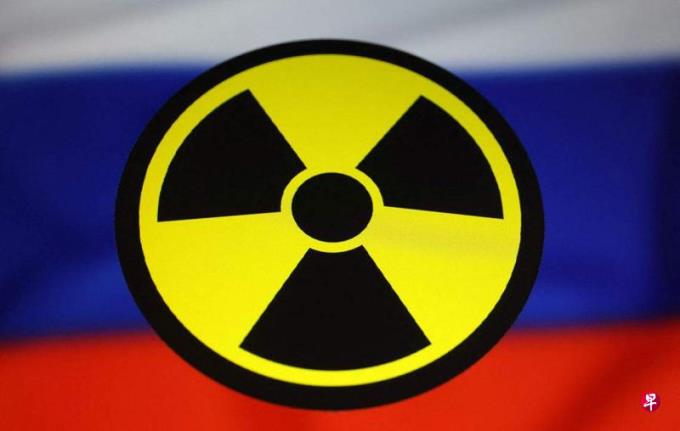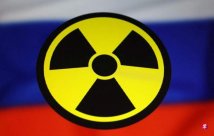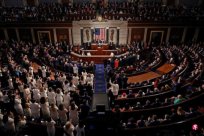
The bad news is that North Korea has completely abandoned its commitment to the non -diffusion nuclear weapon treaty.Since 2006, North Korea has conducted six nuclear explosions, and the highest leader Kim Jong -un has frequently wielded a nuclear knife that threatened the regional stable area.In the Middle East, Iran has built weapons -level concentrated uranium facilities, and is quickly approaching the threshold of becoming the 10th nuclear military country.
The United Nations is preparing for the 2026 review conference that was signed in 1968 in 1968.Many people expect that this time will cause controversy.Some countries are reassessing the principle of non -diffusion in nuclear, because they want to know that if Ukraine retains nuclear weapons inherited from the Soviet Union, Russia will invade the country in 2022.Such negative facts have renewed their concerns about nuclear diffusion.
Of course, such concerns are nothing new.In the memoir of the American Century, I reviewed a period of also controversial in the 1970s.At that time, I was responsible for formulating the anti -diffusion policy for US President Jimmy Carter.After the petroleum crisis in 1973, people generally believe that the world's oil is about to be exhausted, so it needs to be turned to nuclear energy.However, at the time, people also generally believed that the world's uranium resources were about to exhaustive, so they had to rely on re -processed pupae (by -products used in uranium used in nuclear reactors).
According to some predictions at the time, as many as 46 countries will be processed by as many as 46 countries.Of course, the problem is that 种 is a material that can be used for weapons.A world full of trade will face greater risk of nuclear diffusion and nuclear terrorism.
In 1974, India became the first country listed in the five countries (China, France, Russia, Britain, and the United States) listed in the NPT.It uses the crickets from uranium in the United States and Canada, and the conditions for providing these crickets between the two countries can only be used for peaceful purposes.Subsequently, France agreed to sell a re -processing plant in Pakistan.Pakistan Prime Minister Zulfikar Ali Bhutto once said that Pakistan would rather eat grass and never let India form a nuclear monopoly in South Asia.At the same time, in Latin America, Germany sold a uranium concentrated factory to Brazil, while Argentina actively explored the use of 钚 options.As other countries are quietly taking action, an early nuclear arms race competition is outbreak.
Earlier 10 years ago, US President John Kennedy proposed that by the 1970s, the world would have 25 nuclear powers.Although NPT should have avoided this situation, Kennedy's prediction seemed to start true.But when Carter, who was a naval nuclear engineer, entered the White House, was determined to prevent this from happening.
At that time, I just joined the nuclear energy and anti -diffusion committee services of the Ford Foundation and Mitre Corporation. Many members of the committee were finally introduced to the Carter government as an official.Although many people are worried that the world is developing in the direction of the proliferation of the economic and nuclear weapons, Ford -Mitt reports questioning this traditional view and believes that the use of nuclear energy is the safest way."Fuel cycle, lock the cricket in the stored waste fuel.
When Carter met with us in the White House, he accepted our report.However, our suggestions have been strongly opposed by the US nuclear industry, as well as senators in the western and southern states, because the nuclear facilities of these states will be closed.This is also unwilling to see allies such as France, Germany and Japan, because their energy strategy (and exports) will be weakened.
My job after entering the government is to implement Carter's policy, and therefore caused severe criticism from all the above groups.As a scholar, seeing his own name appears in a scolding the editorial and headline news, or he is taken to the Senate Committee to receive hostile inquiries, it is an unprecedented experience.When you are constantly being told that you are wrong, sometimes it is difficult to remember that you may be right!
The question is how to break the traditional concept of driving the world towards the economy.We invite other countries to participate in the "INFCE" (INFCE) in order to conduct consideration on issues such as the supply of uranium and the ability to ensure safety.In 1977, INFCE launched a large -scale meeting in Washington, DC, and its committee and working group held a meeting within the next two years.Therefore, it played a core role in Carter's strategy, that is, strive for time, slow down the development of the situation, and establish a transnational knowledge network. It is not possible to understand the essence of nuclear fuel cycling, and understand its real costs and alternatives.In the two years mentioned above, Infce has completed many tasks to promote the above goals.In 1977, the main nuclear supply country held a meeting in London, and reached an agreement on the guidance principles of "maintaining restraint" on export nuclear sensitive facilities.Soon after that, France and Germany suspended disputed facilities.
What is the status quo of nuclear not to spread today?The good news is that compared with Kennedy predicted that in the 1970s, there will be more than 20 nuclear countries, and there are only nine countries with nuclear weapons today.In addition, the NPT has 189 parties to the party, which is one of the minority arms control agreements that the main country still follows.The guidance principles of Nuclear Suppliers Group are still valid. Although there are still a few countries engaged in re -processing, the world has not quickly moved towards the fragile economy.
The bad news is that North Korea has completely abandoned its promise to NPT.Since 2006, North Korea has conducted six nuclear explosions, and the highest leader Kim Jong -un has frequently wielded a nuclear knife that threatened the regional stable area.In the Middle East, Iran has built weapons -level concentrated uranium facilities, and is quickly approaching the threshold of becoming the 10th nuclear military country.Many observers are worried that if Iran does this, it may cause large -scale nuclear diffusion throughout the region, and Saudi Arabia will also follow it quickly.
The development of these situations is worrying.As my experience in the 1970s showed that when the situation seemed to be particularly severe, I had to do my best to slow down the diffusion of nuclear weapons.Otherwise, the world will become more dangerous.
English Original: Is Nuclear ProLiferation Back? All rights reserved: Project syndicate, 2024.




